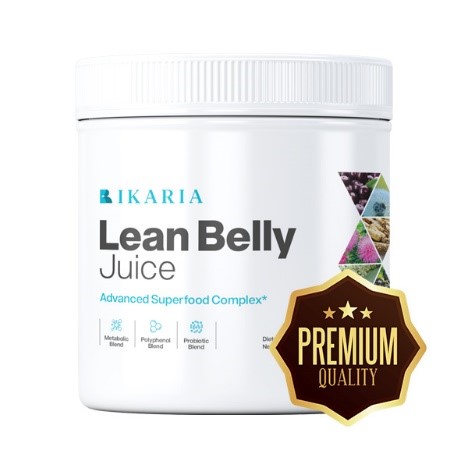If you’ve just lately signed up for a high-deductible health plan, or HDHP, you additionally qualify for a health savings account (HSA). And similar to there are specific issues that make an HDHP totally different from different health plans, an HSA has particular options that make it a novel form of financial institution account to assist pay for what health insurance coverage covers.
Let’s go over the main points of what an HSA is and what to do if it is advisable to open one up. We’ll additionally go over how one can contribute to your HSA, what you possibly can spend your HSA funds on and the way the cash you’ve saved can comply with you 12 months after 12 months – even to your subsequent job and into retirement.
A health savings account is a kind of financial institution account used particularly for medical prices – physician visits, prescriptions, eyeglasses, and related services and products. For an HSA you’ve gotten by work, you select how a lot cash out of your paycheck goes into this account every pay interval earlier than taxes are taken out. You can even deposit extra cash to an HSA exterior of labor contributions.
This pretax cash stays in your account till it is advisable to use it for eligible out-of-pocket medical bills. Your HSA cash is yours to maintain, rolling over from 12 months to 12 months and touring with you for those who go away your job.
High-deductible health plans (HDHPs) and HSAs
You can solely have an HSA for those who’re enrolled in a high-deductible health plan (HDHP) – a health insurance coverage plan that contains a decrease month-to-month premium with the trade-off of a better deductible.
HDHP thresholds change yearly. For 2023, these plans should:
- Have annual deductibles of at the least $1,500 for single protection and $3,000 for household protection
- Have an annual out-of-pocket most of not more than $7,500 for single protection and $15,000 for household protection
And for 2024, HDHP plans should:
- Have annual deductibles of at the least $1,600 for single protection and $3,200 for household protection
- Have an annual out-of-pocket most of not more than $8,050 for single protection and $16,100 for household protection
Usually, these plans may have “HDHP,” “high-deductible health plan” or “HSA” of their title. If your plan doesn’t, and it doesn’t meet HDHP necessities, you then gained’t have the ability to open or contribute to an HSA. You additionally gained’t be eligible to open an HSA for those who’re enrolled in Medicare or have some other health care protection. If you’ve gotten questions on whether or not you’re eligible for an HSA or not, your employer or health insurance coverage firm may have solutions.
Health savings accounts have two shut family: versatile spending accounts (FSAs) and health reimbursement accounts (HRAs). All three can be utilized to pay for health care bills, however they’re very totally different with regards to issues like funding and your skill to roll funds over from 12 months to 12 months.
Like an HSA, a versatile spending account (FSA) holds pretax cash for medical, dental or imaginative and prescient bills. Unlike an HSA, you possibly can pair an employer-offered FSA with any form of employer-sponsored health plan, not only a high-deductible health plan. There are additionally particular limited-purpose FSAs for dental and imaginative and prescient bills that may work alongside an HSA, in addition to separate particular reimbursement accounts for dependent care and transportation.
Also in contrast to an HSA, the cash in an FSA usually must be spent earlier than the top of the 12 months. If you hear “use it or lose it” with regards to FSAs, that’s the rationale why. Some employers might permit a restricted rollover of FSA funds every year, however it’s restricted by IRS rules – in contrast to HSA funds which may carry over every year in full.
A health reimbursement account (HRA) can also be totally different from an HSA. An HRA additionally incorporates pretax cash to pay for health care prices, however the funds come solely out of your employer – you don’t deposit any cash into an HRA your self. Your employer decides how a lot cash goes into the account, what bills are eligible and the way a lot cash can carry over from 12 months to 12 months.
Think of an HSA as a checking account that’s particularly for health care bills. If you qualify, it’s straightforward to open one up and use your HSA funds, both by a particular debit card or by submitting receipts for reimbursement.
Your HSA can function a wonderful solution to monitor and handle your health care prices, providing you with a transparent look into the place your health care {dollars} go over time and the place you may make changes to get probably the most out of your cash.
Setting up your HSA
If you’re enrolling in a high-deductible health plan by work, your employer might arrange an HSA for you or refer you to a monetary establishment that may. If your employer sets up an HSA for you, you’ll get pleasure from a reasonably seamless expertise since your HSA’s financial institution or credit score union will combine along with your payroll system, making pretax deductions out of your paycheck automated.
If you’re enrolling in a high-deductible health plan by yourself, your new insurer may also have the ability to arrange an HSA for you. If they’ll’t, otherwise you need to open your account some other place, you possibly can arrange your HSA at any financial institution or credit score union that provides one. Keep in thoughts that HSA options might differ from place to position – all the time ask for an inventory of advantages and costs your HSA might have so that you get a full sense of what to anticipate.
Adding cash to your HSA
As a part of organising an HSA by your employer, you’ll be asked how a lot cash you’ll need to put aside in your HSA. Each pay interval, this quantity shall be despatched on to your HSA earlier than taxes are taken out of your paycheck. Your employer may also contribute cash to your HSA or match your contributions.
You can even deposit your individual after-tax cash to your HSA, both suddenly or by common automated deposits. Even higher, these deposits are deductible whenever you file your taxes yearly.
However, whether or not you contribute through payroll deductions or deposits you make your self, there are limits to the amount of cash that may be put into an HSA every year.
HSAs have limits on how a lot cash you possibly can contribute
The IRS has annual limits for the way a lot will be contributed to HSAs. These limits can change every year.
In 2023, HSA contribution limits are:
- $3,850 for particular person protection
- $7,750 for household protection
And in 2024, HSA contribution limits are:
- $4,150 for particular person protection
- $8,300 for household protection
If you’re 55 or older, it’s also possible to make an additional $1,000 “catch up” contribution every year.
These limits embody cash from all sources – such as you and your employer – and throughout all of your HSAs (for those who occur to have a number of accounts). For extra particulars, take a look at irs.gov.
How a lot ought to I contribute to my HSA?
It relies on how a lot you spend on health care every year and the way you see your wants altering sooner or later. Before you resolve, take a while to look again at how a lot you’ve spent on medical bills in previous years – this will help you get an estimate of what you’ll spend within the coming 12 months. Try to determine in any cash you’ve spent on dental and imaginative and prescient care since you should utilize cash out of your HSA for these, too.
It can even assist to look ahead. For instance, if you realize you’re anticipating a baby or planning for a significant surgical procedure, occasions like these (and the way a lot they’ll value) can even think about to what you would possibly need to save in your HSA.
Remember, HSA funds don’t expire – they stick with you till you spend them. You can put aside as a lot as your price range permits (so long as you keep beneath the IRS limits).
Is an HSA pretax?
Definitely – the truth is, the tax savings are triple!
- First, you’re not taxed on cash that goes into your HSA.
- Second, HSA curiosity and funding earnings are tax free.
- And third, whenever you spend your HSA on eligible bills, you’re not charged tax.
It all means decrease taxable revenue, tax-free earnings and tax-free health care spending. You may even save your HSA funds all the way in which to retirement – and pay for health care bills later in life.
Once cash accumulates in your health savings account, you should utilize it for eligible health care bills.
What can I exploit my HSA for?
In basic, you should utilize your HSA for all kinds of health care bills, like physician visits, lab charges, prescription medicines, residence medical tools and extra. You can even use HSA funds for dental and imaginative and prescient care. Dentist workplace visits and braces are eligible too, in addition to eye exams and LASIK surgical procedure.
In reality, now we have an inventory of qualifying medical bills (PDF) that will provide you with a good suggestion of what you possibly can (and may’t) use your HSA funds for.
If you’re a HealthCompanions member with an HSA by Fidelity or Optum, you may get extra particulars about eligible bills by signing in to your on-line account. Members even have entry to Health Shopper, a straightforward solution to search for eligible bills, in addition to a spot to search out and buy eligible HSA merchandise.
Spending your HSA funds – debit playing cards and reimbursement
There are two primary methods you possibly can entry the cash in your HSA account: debit card and reimbursement.
HSA debit card
Your HSA might include a particular debit card. This is the best means to make use of your HSA – simply present the debit card at your supplier’s workplace when paying for providers, or use it to pay for eligible objects at a retailer or on-line. The card takes the cash immediately from the account. Just save the receipt in case you’re asked to confirm that the transaction was for eligible objects or providers.
HSA debit playing cards additionally present one other money-saving comfort: Most will solely work at HSA-eligible retailers, declining transactions elsewhere. That makes a wonderful safeguard in opposition to by chance shopping for ineligible objects and providers – a mistake that may carry a large IRS penalty of 20%.
Getting reimbursed out of your HSA
Another means you possibly can entry your HSA funds is thru reimbursement, which takes a couple of further steps however can act as an excellent backup in case you overlook, can’t use or don’t have an HSA debit card.
Just pay in your HSA eligible bills as you usually would and save the receipt. Then, submit your receipt together with the mandatory particulars to your HSA’s financial institution – some will allow you to submit photographs of your receipts by their web site or cell app.
Reimbursement funds are despatched on to your financial institution account for those who’ve signed up for direct deposit, or by examine. Some HSAs might cost charges for examine reimbursements.
Keeping monitor of your HSA
Most banks offer you entry to your HSA by both an internet account or cell app. This means, you possibly can hold monitor of deposits and withdrawals in actual time whereas additionally seeing the place your cash goes. HealthCompanions members with HSAs by Fidelity or Optum can see particulars by signing in to their on-line account or utilizing the myHP cell app for Android and iOS.
In any case, your HSA administrator will even ship you IRS Form 5498-SA each spring, which is a abstract of your HSA exercise for the earlier 12 months. When you obtain it, double examine to verify all the data is correct and put it aside in your information.
Your HSA is all the time yours
As time goes on, among the best components about having an HSA is that the cash you deposit stays yours till you employ it:
HSA funds roll over 12 months to 12 months (they don’t expire)
There’s no restrict to the quantity of funds you possibly can roll over from 12 months to 12 months. Plus, in contrast to a versatile spending account (FSA), there’s no “use it or lose it” rule.
Bring your HSA with you
Leaving your present job? Your HSA travels with you, together with all of your funds. If your subsequent employer has an HDHP, you possibly can open a brand new HSA and switch your funds over with out penalty. But for those who don’t find yourself lined by an HDHP after you permit your present job, you possibly can nonetheless use your HSA funds for eligible bills – you simply can’t contribute more cash to your account.
Earning curiosity along with your HSA
HSAs can earn curiosity similar to different interest-bearing financial institution accounts. Plus, the curiosity you earn is tax free. If you possibly can’t discover your account’s rate of interest, your HSA administrator can provide the particulars.
Investing your HSA funds
Once you’re over a minimal account steadiness, some HSAs will let you switch a part of your funds right into a separate account to take a position. If provided, your HSA administrator may have extra particulars about HSA funding choices.
HSA funds after age 65
When you have fun your sixty fifth birthday, your HSA turns into much more versatile. After age 65, the 20% IRS penalty not applies to utilizing HSA funds for non-medical bills (you’ll nonetheless pay common tax on these withdrawals). In impact, this turns your HSA into a conventional IRA – which is why some individuals use their HSAs as a further solution to save for retirement.



















Discussion about this post